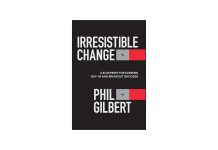A global managing partner and I were discussing how professionals add strategic value. When he remarked, “Strategy begins with empathy,” I knew immediately this was a profound insight. From the moment I heard it, I couldn’t stop thinking about it.
“Strategy begins with empathy!” This statement caused me to recall Steve Job’s brilliant assertion, “Get closer than ever to your customers. So close that you tell them what they need well before they realize it themselves.” Training professionals, as consultants, should apply this insight to their internal or external clients.
Beginning strategy with empathy is an evolved and mature approach. Empathy is holding deep conversations so you can mentally visualize your client’s psychological experience. Empathy means not unconsciously projecting your ego so you don’t interpret what is happening from your personality’s perspective. You see and interpret things as they are, not as you unconsciously want them to be. Perceptual accuracy is one important way that empathy starts the creation of strategic value.
Professional consultants can see the world through their clients’ eyes, but without attaching their ego to the outcome (which clients often do). Adding objective, empathetic perspective to give clients a new dimension of thought is adding real value. It takes emotional maturity to subordinate the ego and accurately process information from a perspective outside of your own.
Through empathy, you connect your clients’ situation to your firm’s expertise and solutions. Empathy again adds value in creating an outcome together; a strategy based upon the sum of your combined efforts, only better. When accomplished, relationships are built on a deep foundation of trust and authenticity.
Given the diversity of personalities in the workforce, how do we turn “strategy begins with empathy” into behavioral reality? Through comprehending and establishing two dynamics:
1. Mindset
2. Talking out loud
Mindset
An empathetic mindset is grounded on one simple aspiration, truly listening to the client’s story. This is when we look forward to and find value in listening, not just in responding. Intense listening demands patience, especially since we often see a solution long before the client’s mind is ready to receive it. The ego can be quite powerful. It takes real maturity to avoid expressing an opinion or jumping in with counsel before you fully understand all impacting subtleties. A person becomes a high-quality listener when the ego’s need to demonstrate intellectual superiority is overcome. When you are completely present and listening intently, your ego is suspended. You are listening, not thinking. When you are focused on empathy, a solution materializes over time. Putting your ego on the back burner is a maturational growth step. This is especially true for anxious professionals who are looking to showcase their technical expertise and intellectual grasp of a situation.
Talking Out Loud
I led an executive retreat where the leadership team was redefining its corporate mission statement. Over a period of two days, a variety of thoughts and ideas were put on the table. My role as a consulting professional was in guiding the discussion through asking open-ended questions and patiently allowing senior leaders to talk out loud. When this environment was created, the team was able to develop a perfect description of the company’s strategic mission and vision. Everyone was excited about the outcome. The success of this process confirmed to me what I already understood about the power of uninterrupted talking out loud.
When you develop an empathetic mindset, you increasingly understand that human beings learn from hearing themselves talk out loud. Talking crystallizes thinking. As the client’s bits of memory clash with new spontaneous ideas, they’ll jump from concept to hypothesis only to restart down a new path. These out-loud internal dialogues may not make linear sense. But an empathetic professional doesn’t rush the process or interrupt the client’s stream of consciousness.
When someone goes through the cathartic process of uninterrupted talking out loud, they often discover that the solution or the root cause of a problem is not at all what they expected it to be. A third-party perspective is especially valuable when someone isn’t consciously aware of their emotions or biases. A trusted advisor can more rationally observe what is driving thinking and behavior. You’ve done a real service when you are able to recognize inaccurate thinking or an underlying unexpressed emotion such as fear. This is what Steve Jobs believed—being so close to the customer that you help them understand what they need well before they realize it themselves.
In summary, when you have an empathetic mindset, clients trust and are comfortable exploring and expressing their truth with you. People need psychological safety in order to go through an often disjointed, contradictory, and lengthy journey of talking out loud to facilitate discovery. Your act of being patient, non-judgmental, and genuinely interested enables the client to free to speak from their heart. Now strategic outcomes come from a place of deep unfiltered communication. Adding strategic value is about solving pain points or providing your client with another dimension of thought. The client thus perceives a bigger, or more accurate, reality. This is what great consultants and world-class professionals do. But empathy lays the foundation— without this human capability, a professional cannot formulate a strategic, unique, client-centered strategy.
Truly, strategy begins with empathy!
George Watts is chairman of TLTCoaching.com, a virtual coaching firm working with Fortune 500 clients.




